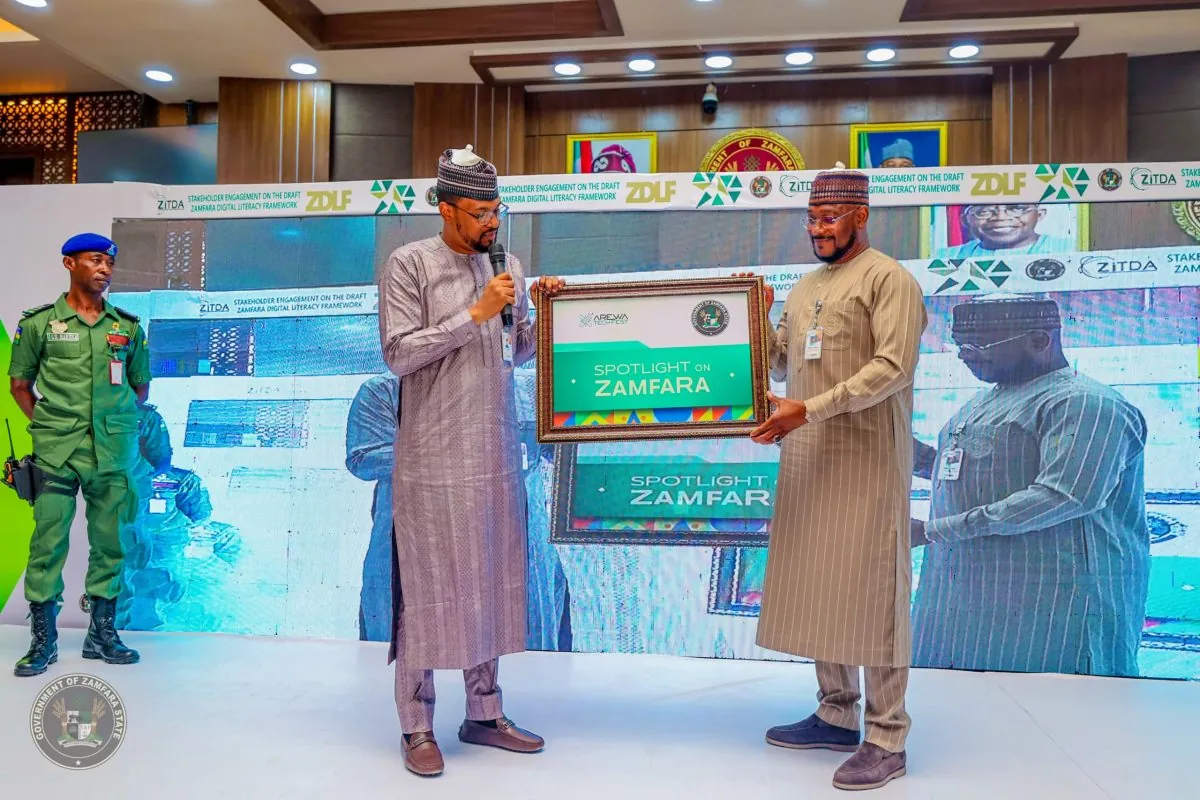Zamfara State has taken a pioneering step in Nigeria’s digital transformation journey by unveiling the country’s first Digital Literacy Framework (ZDLF), aimed at equipping citizens with vital digital skills to drive inclusive economic growth, innovation, and e-governance.
The framework was formally introduced during a high-level stakeholder meeting on Wednesday at the Garba Nadama Hall, JB Yakubu Secretariat in Gusau. The event brought together key representatives from federal agencies, development partners, legislators, academia, and the private sector to deliberate on the draft document and strengthen its implementation roadmap.
Governor Dauda Lawal described the initiative as a forward-thinking response to the demands of a fast-evolving digital world. “This framework is more than just policy it is our strategy for creating a digitally competent and economically resilient state,” he said.

According to a statement by his spokesperson, Sulaiman Bala Idris, the governor emphasized that the ZDLF is designed to integrate digital learning into the state’s education system, enhance service delivery in the public sector, and expand digital access for entrepreneurs and traders.
“Digital literacy is now essential for productivity, employment, governance, and global competitiveness,” Governor Lawal added. “Zamfara cannot afford to lag behind while the rest of the world advances.”
As part of the state’s early efforts, Zamfara has partnered with Oracle Corporation to train 3,000 young people in Cloud computing, Artificial Intelligence, Data Science, and Database Management. Through Oracle Academy, tertiary institutions across the state are receiving support to produce graduates with industry-relevant digital skills.
Construction is also underway on the Zamfara Institute of Information Technology (ZIIT) in Gusau, which is expected to become a regional hub for ICT education and innovation. The governor described the institute as a key pillar in the state’s strategy to close the digital divide and promote local tech talent.
Senator Ikra Aliyu Bilbis (Zamfara Central), who chairs the Senate Committee on Communications and Digital Economy, commended the state’s leadership for taking initiative. In a show of support, he donated 300 computers to the Zamfara Information Technology Development Agency (ZITDA) to aid its ongoing digital transformation programmes.
Providing an overview of the framework, Dr. Habib Gajam, Executive Secretary of ZITDA, said the ZDLF is built around four core outcomes and is designed to be inclusive, strategic, and responsive to the needs of Zamfara’s diverse population.
Federal digital institutions in attendance included the Nigerian Communications Commission (NCC), Galaxy Backbone, the National Information Technology Development Agency (NITDA), Nigerian Communications Satellite (NIGCOMSAT), and the Nigeria Data Protection Commission (NDPC).
Zamfara’s move is widely seen as a significant stride toward national digital inclusion and positions the state as a model for others seeking to align with Nigeria’s evolving digital economy.




